A guy I know published a book that came in about 650 pages. It did alright. Got good reviews, but didn’t sell. So his agent told him to break it up into two volumes of about 300 pages each and sell it as two books in a series. Why? Because no one today will read a book over 350 pages or so.
Really?
I am quite suspicious of industry experts who make such universal declarations based on polling and focus groups and online forms. Those sources of information are rather suspect because they are limited to the kinds of people who are willing to be polled or participate in focus groups or fill out online forms. You know, people with agendas. Not saying everyone who does this has an agenda, but there are documented things like the Barnum effect and Confirmation Bias and the uncertainty principle. Well, okay, the uncertainty principle doesn’t really apply here, but you get my meaning. So what does apply?
Common sense.
I mean, would you rather have the entire story in one volume available for your perusal, or two different volumes published at two different times? At twice the cost. And for those who think a big book is too unwieldy to carry around, I don’t think it adds any weight to your Kindle.
Personally, I love big books, 650-3000 pages and all. If you’re going to read, then read. And here’s some big ‘uns worth reading, in no particular order:


10. Dune, by Frank Herbert. Yeah, yeah, done to death, this one, by TV and movies and hype. Personally I like the Kyle McLaughlin version. Sting wearing a Speedo and wielding a knife while screaming “I will kill him!” is not an image you can easily erase. So a lot of people know the story without reading the book and this is a crime. Yes, the book is hard going, needing a glossary for all of the weird words Herbert invented (Gom jabbar? WTH?) but that’s part of the fun.
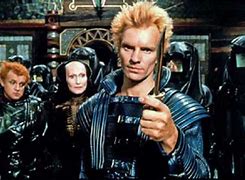
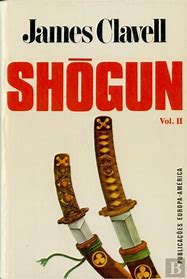
9. Shogun, by James Clavell. Another giant novel murdered by mini-series, although a ‘purt good mini with Richard Chamberlain and Toshiro Mifune and pillowing, which I will leave for you to discover. The novel is a fictional account, told through the eyes of a shipwrecked English sailor, of the imperial struggles between two dynasties of medieval Japan, the Toranaga and the Ishido clans. It is loosely based on the true story of how the Tokugawa shogunate came to be. Quite loosely. But the court intrigues make Machiavelli look like a choir boy.
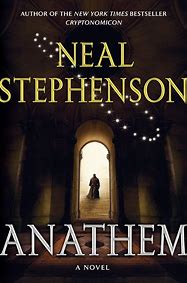
8. Anathem, by Neal Stephenson. It is rare for me to make a list on which Neal Stephenson doesn’t appear and this is one of his best. A world governed by a monastic community discovers that aliens are orbiting their planet, throwing quite the monkey wrench into their ascetic, technology-adverse, lifestyle. World and universe building by a master of both.
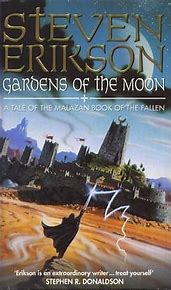
7. Gardens of the Moon, by Steve Erickson. Although this barely qualifies at 650 or so pages, it is an outstanding read, dark and scary and sorcerous and a world you simply don’t want to be a part of. The first of the Malazan Book of the Fallen fantasy series, it is, in my opinion, the best of them, which is usually the case for first books of series. Right, Gentlemen Bastards?
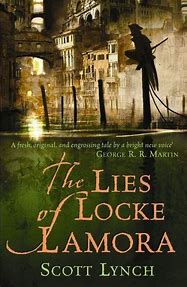
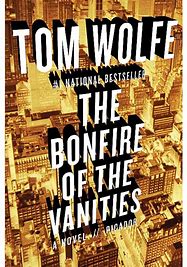
6. The Bonfire of the Vanities, by Tom Wolfe. Okay, yeah, Tom Wolfe is one of those elite writers you’re supposed to hold a slightly dismissive attitude towards because his books are so wry and on the nose but this one is magnificent, a downright funny examination of politics and celebrity and the fake reality both inhabit. Sherman McCoy, a Master of the Universe, is undone when he accidentally runs over a would-be mugger while tooling around in his luxury vehicle with his mistress. The ensuing hue and cry was satire in the 80s. Today, it’s documentary.
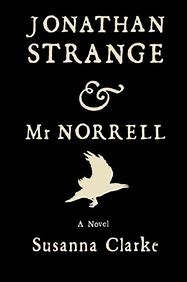
5. Jonathan Strange and Mr. Norrell by Susanna Clarke. A deadpan look at an England where matter-of-fact magicians assist in the Napoleonic Wars and attempt to bring back the old powers, triggering a confrontation with the fairy world. Tinker Bell is not your friend.
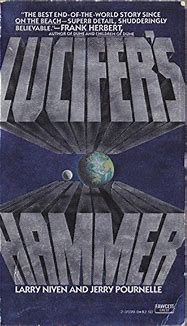
4. Lucifer’s Hammer, Larry Niven and Jerry Pournelle. One of the best post-apoc novels to date, a comet strikes the earth, triggering worldwide volcanoes and earthquakes and a nuclear strike because, hey, use ‘em or lose ‘em. Best get that compound prepped and ready.
3. American Gods, by Neil Gaiman. Oh, c’mon, it’s Gaiman so that’s recommendation enough and you’ve seen the HBO series so you know the story, the twilight of the gods, so to speak. Odin recruits a felon to assist him in an upcoming war with the new gods. What more do you need to know?
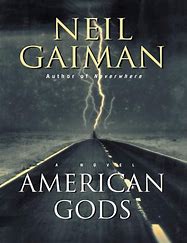

2. Centennial, by James Michener. Yes, I know, you’re not supposed to like Michener because he is so formulaic and his characters are one dimensional and he’s a bit of a propagandist. But this story is epic, covering an area of Colorado that, after 130 million years or so, turns into the Old West town of Centennial. Getting there is half the fun. And it was a pretty good mini series, too.
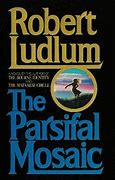
1. The Parsifal Mosaic, by Robert Ludlum. Before there was Bourne, there was Havelock. This is vintage Ludlum with more assassinations and back stabbing and twists and utter craziness that you can shake a silencer at. Take notes because, hoo boy, there’s a lot of people in this. Michael Havelock, a State department agent, witnesses the murder of his partner and lover, who turns out to be a KGB spy. He quits intel work and is out minding his own business one day when he runs into his not-quite-dead ex-lover and partner. Then the fun begins.
So, turn off that silly Netflix and settle in for the long haul.